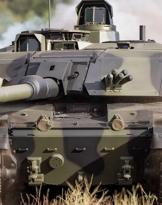With the eyes of twenty-year-olds, things are understood differently: some are frightening, others make us believe we are immortal, others still seem unimaginable. The growth that an armed force offers increases self-confidence by making us consider our potential; in reality it manages not to make you understand that, behind you, there is always an organization ready to support you.
The Marshal continues...
The department and the exercises
The next morning, in the dormitory on our bunk beds, at the sound of the alarm no one gets out of bed. Me and my classmate cWe look at them in confusion: we don't know how to behave.
After about 15 minutes a sergeant comes in to give the alarm... as he is going out the door someone throws him an amphibious boot which hits the door, he turns around, asks who did it and no one speaks. After three minutes everyone gets back into their cots and continues to sleep. My friend and I look at each other lost again, the dismay is maximum.
We have to leave for an exercise in Friuli: my first in the operations department...
Three days before departure I check the list with the names of the participants on the noticeboard hanging outside the quartermaster's office, and I find myself the chief engineer of an ACM-52 with 13/14 soldiers on board.
The destination location is “Santa Margherita” in the Province of Udine. The road we have to take to reach this location is a state road.
I remember that on the morning of departure there was incredible confusion in the courtyard of the barracks, the busiest were the mechanics who, with batteries mounted on a trolley (which they called "the battalion's whore"), continuously wandered among the vehicles: many of these have dead batteries and won't start.
In the small courtyard between the darkness, the fog and the smoke from the exhausts of the vehicles you can't see anything and you can hardly breathe due to too much smoke. All men are busy, all move quickly. I feel like I'm going to war!
As soon as they leave, the most undisciplined ones immediately make themselves noticed and I don't hide the fact that I am intimidated by them, also because I don't know anyone yet. At that time, we non-commissioned officer students were not liked by anyone because of our careers. They call us "sign makers". I observe them carefully and, from their behavior, I try to understand the characters. I promise myself to call them back only in case of exaggerated behavior.
After a few hours of travel we get tired and some start to sleep. There is always someone sleeping in turn. The journey lasts a good 12 hours and goes quite well. We arrive tired and cold in Santa Margherita at around 18,30pm and, once we get off the vehicles, we find ourselves in front of a large farm.
The company commander shows us around and starts talking. He speaks slowly and I, who am at the back of the frame, don't understand what he says. Suddenly everyone starts taking something into their backpack... I see they have the straw mattress in their hands.
When there is the "break the ranks" they all start running in the direction of the farm, pushing each other to get in first, I don't understand the reason for the rush. They fight to get the corn leaves that are piled up; the leaves are used to fill the straw mattress to be used as a mattress. When I arrive there are very few leaves left, my straw mattress will be the emptiest of all.
The next day we start making connections with the radio links. It's the first time for me and I carefully observe everything the sergeant major, the liaison officer, does. Those equipment are scraps from the US Army and not easy to tune. The sergeant major will have to work hard to have a sufficient signal to make the radio link. To make these radio links work, experience and manual skills are required: they work with valves and quartzes are used to generate the working frequency, then the calibration begins with the screwdriver, which is not at all easy.
We're starting to settle in
The first evening I work the night shift. I have to be honest: I'm a little worried because I have no experience and I don't know if I'm able to solve any problems with the connections.
Around midnight, my correspondent who manages the repeater calls me and tells me that he hears a lot of rustling in his receiver. I put the transmitter on high power and the connection improves. When he tells me he can hear well, I recognize the voice of my correspondent: he is a friend from class who was assigned to the transmission battalion of the Vth Army Corps and his correspondent from the other connection is always a classmate .
We talk all night, they tell me that even they in the assigned department don't understand how they should behave. We realize that we are all in the same situation. We keep each other company.
The following morning, at shift change, I see soldiers walking in our direction, all colored blue. I ask a sergeant about the reason for the blue color. He tells me that they are the "teleprinters" who come off shift and are dirty because the teleprinter rolls, between one sheet and another, have carbon paper for the copies...
(Go on)
Read "Stars of the past (part one): from the SAS to the 60s department"
Photo: author












